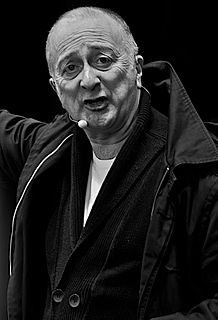A Quote by Mark Waid
I got taught a lot of great lessons by superhero comics as a kid about virtue and self-sacrifice and responsibility. And those were an important part of imprinting my DNA with ethical and moral values.
Related Quotes
I’ve always thought that if comics are a part of pop culture [then] they should reflect pop culture, but a lot of the time comics, superhero comics especially, just feed on themselves. For me, comics should take from every bit of pop culture that they can; they’ve got the same DNA as music and film and TV and fashion and all of these things.
I was brought up by a Victorian Grandmother. We were taught to work jolly hard. We were taught to prove yourself; we were taught self reliance; we were taught to live within our income. You were taught that cleanliness is next to Godliness. You were taught self respect. You were taught always to give a hand to your neighbour. You were taught tremendous pride in your country. All of these things are Victorian values. They are also perennial values. You don't hear so much about these things these days, but they were good values and they led to tremendous improvements in the standard of living.
When I was a kid, back in the '40s, I was a voracious comic book reader. And at that time, there was a lot of patriotism in the comics. They were called things like 'All-American Comics' or 'Star-Spangled Comics' or things like that. I decided to do a logo that was a parody of those comics, with 'American' as the first word.
If we empower ourselves with responsibility over our actions, responsibility over our destinies and responsibility for directing and maintaining and creating our own ethical and moral frameworks, which is the most important thing really isn’t it because perhaps the greatest insult to humanism is this idea that mankind needs a god in order to have a moral framework.
I saw the comics in the East Village Other, and they weren't superhero comics, they were all about hippies and all about things hippies were interested in. And there was one page in particular, a full page strip called "Gentle's Trip Out" signed "Panzika", and it was totally, totally psychedelic, and really, I don't know if it made any sense at all but it looked so great, and I thought, "This is what I want to do, this is my big influence," and it was.
Immigrants bring to America the values of faith in God, love of family, hard work and self reliance - the values that made us a great nation to begin with. We've all seen those values in action, through the service and sacrifice of more than 35,000 foreign-born men and women currently on active duty in the United States military.
My father always taught by telling stories about his experiences. His lessons were about morality and art and what insects and birds and human beings had in common. He told me what it meant to be a man and to be a Black man. He taught me about love and responsibility, about beauty, and how to make gumbo.
In my class was an Annapolis graduate, several engineers, and most recent president of the University of Alabama.These were all small-town people who had good values. The families were tight. The schools reaffirmed the families and reaffirmed the church values that you were taught. I guess it was just one of those swell times to be a part of.





































